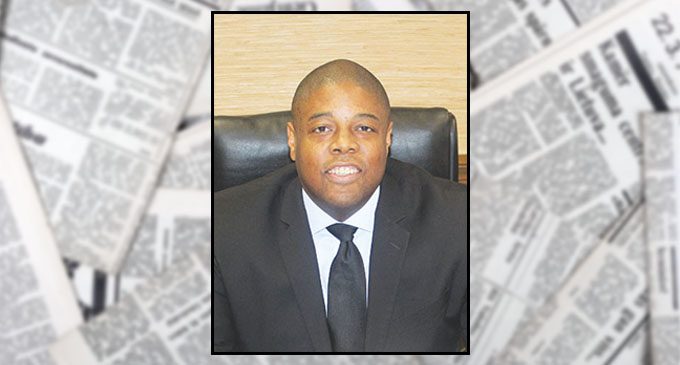Urban League, others left out of county mental health budget

BY TODD LUCK
THE CHRONICLE
Dozens of programs are covered in Forsyth County’s proposed allocation of mental health funding to Cardinal Innovations Healthcare but some, like the Urban League, may find the money for their programs cut next fiscal year.
The Urban League CEO James Perry says that the program might end without funds to replace those cut.
Counties are required by state law to fund mental health, substance abuse, and intellectual and developmental disability services. In Forsyth, that money goes to Cardinal Innovations Healthcare, which took over CenterPoint Human Services last year. Its services in the county are mostly funded by Medicaid reimbursement paid to service providers. It also receives state funds for target populations.
The county’s annual $4 million is typically used for services not funded by other means. When the county funded CenterPoint, it had no control over its funds, but, now with Cardinal, the county can pick what services get funding.
County staff has prioritized safety net services, programs that mitigate barriers to care access, jail and emergency service diversion efforts, quality of life enhancing services, service not eligible for other funding and supporting operation of the Highland Avenue crisis facility, which the county allocated $868,047 to its reverse fund.
The overwhelming majority of budget requests from Cardinal received recommendations by county staff. Among those that didn’t was an annual $25,000 grant to the Urban League.
“Looking at the contract, there was really no deliverables to be able to tell what services we were supposed to be getting,” Assistant County Manager Ronda Tatum told county commissioners last week. “Again, not saying what was being done wasn’t worthy, it was impossible to gauge the effectiveness of what we were spending money on.”
The county had not contacted the Urban League before making the recommendation not to fund the grant. According to Perry, the money goes to mental health workshops it performs in low-income communities. The work-shops let mental health professionals connect with underserved minorities, breaking through stigmas they may have about seeking help.
“It does take someone who they trust coming in and saying, ‘Look, this is important, you can trust this process because it does save lives,’” said Perry.
Perry said the Urban League had reports on the program it gave to CenterPoint. He said his organization had received the money for at least the last five years and without it, the program will cease. He said that he hopes the county will decide to continue funding it.
Others things staff didn’t recommend funding were $60,000 in funding for the Prevention, which provides information, education, training, advocacy and other resources for abuse prevention. The Coalition’s board also advices the city and county on substance abuse matters. The Cardinal funds from the county comprises the majority of the Coalition’s current budget.
Other recommended cuts included $27,000 for the Text for Teens program that offers text counseling for troubled teens and $141,440 for Dr. Palmer Edwards’ service at the Downtown Health Plaza, who Tatum said is training physicians there. The money from the unfunded programs goes into a reserve fund, which has $473,209 in the recommended budget.
Among the multitude of things county staff is recommending funding includes service providers The Enrichment Center, Daymark Recovery Service, Monarch and Horizons Residential. There are also funds for opioid outbreak response, mental competency evaluations, foster care and adult emergency beds, lab work for patients on medication, the National Alliance for Mental Illness’ Family to Family program and the Stepping Up initiate, which helps the mentally ill and substance abusers in jail. The budget also restores advisory boards to give advocates more of a voice in how Cardinal is run.
By state law, the county can raise the amount it gives for mental health funding but can’t lower it without across the board County budget cuts. County commissioners can change what programs get funded in the coming months as they consider the entire county budget that will go into effect on July 1.











